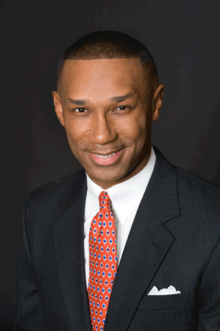Commentary & Opinion
Second Chances Versus the #MeToo Movement
By Andie Burjek
Jun. 25, 2018
The issues that HR face today tend to be divisive now. What’s fair? What’s appropriate? What even are the facts?
Coretha Rushing, senior vice president, chief people officer at Equifax and board president at the Society for Human Resource Management, said this to a room of thousands of HR professionals on the Monday morning of SHRM’s annual conference. And she has a point: HR is increasingly in the spotlight, and most of these topics are heavily debated topics for which get people emotional on either side of the issue.
“Everywhere you look, people issues are dominating conversation, from #MeToo to AI and so much more,” Rushing said. That seemed to be a major theme of this year’s annual conference: HR is both increasingly the subject of people’s attention now, and meanwhile organizations like SHRM are making more of an effort to advocate for issues publicly under the leadership of Johnny C. Taylor Jr., who certainly does not come across as someone who’s nervous to debate.
My editor Rick Bell has gone into detail about this as it relates to the Workflex in the 21st Century Act, and I’d like to throw out another context a well as I conclude my SHRM18 coverage for Workforce. I’ll use Taylor’s press conference on Monday, June 18, as source material. Also my inspiration: an HR professional who in a passing, short conversation said that they were surprised SHRM didn’t have more planned around sexual harassment.
Harassment is one of those hotly debated topics that is difficult for HR to address.

According to Taylor, three major agenda items for SHRM are workplace immigration, second-chances for the formerly incarcerated, and harassment (both sexual and otherwise). An obvious tension point between two of these three items, which one journalist did ask Taylor about at his press briefing, is #MeToo versus people who have been incarcerated for a sexual crime.
We didn’t get a clear answer on this from Taylor in the press conference, although it seems clear what SHRM’s perspective will be on second chances. Case in point:
- Everyone deserves to start over after they’ve served their time, Taylor said. Everyone deserves that second chance. I’m playing devil’s advocate here: That’s a pretty broad statement. Not everyone does. What about the Harvey Weinsteins, Mario Batalis or Matt Lauers of the world? There are enough men in the world who don’t harass women, and enough women who haven’t been given those same career opportunities as men, historically, that maybe they should be the ones to get their first chance.
- An even more interesting debate moving forward will be, what about third chances? And fourth chances? Taylor posed this thought. My counterpoint: I’d really, really hope companies would put their foot down after a certain number, in the context of harassment. To do otherwise would be irresponsible. Also, think of how many of these cases that have come to light recently in which a person has continually committed similar verbal or physical abuse and gotten away with it. They’ve already gotten their chance not to repeat a behavior again.
- If a person’s criminal record says “assault,” that can mean many different offenses, Taylor said. For example, maybe it was a verbal threat and nothing physical. My counterpoint: Verbal threats are still serious. Let’s not undermine the seriousness of these just because nothing physical happened; emotional and mental abuse are real and not to be taken lightly.
Big picture, here’s what I’m getting at: People have the capability to change and reform. But let’s admit the seriousness and pervasiveness of sexual harassment. Crazily enough, there are people out there who still don’t get that this is a big deal! Or that women don’t seem to know how to take a compliment or a joke!
My concern is that it’s already pretty well-known that HR historically has not done enough or gone far enough in the fight against sexual harassment. Yes, it’s a positive if HR folks want to give people second chances, but I really hope that they’ll be much more proactive at appropriate punishments, like firing or filing criminal charges if necessary, when it comes to people who have been incarcerated for sexual offenses, whether that’s verbal or physical. HR has a lot to prove right now in how it deals with sexual harassment.
This brings me to Rushing’s talk, because at one point she brought up how at Nike, when a group of women wanted to come forward about harassment, they went to the media, not HR. That’s how they knew something would actually get done to address the situation.
“Too often we’re hearing, I went to HR and nothing happened,” Rushing said.
My personal call for HR professionals in the advocacy space is: Yes, of course, advocate for the formerly incarcerated. It’s true that they’re an untapped source for talent. I want to be clear that I agree this is a very positive development, that Taylor had many solid points in his argument, and that many people out there deserve a second chance.
Meanwhile, don’t put sexual harassment on the back burner. That’s still important and should remain in the spotlight as well. As you move to improve the job-search environment for the formerly incarcerated, also remember to be more assertive in how you address harassment.
Schedule, engage, and pay your staff in one system with Workforce.com.
